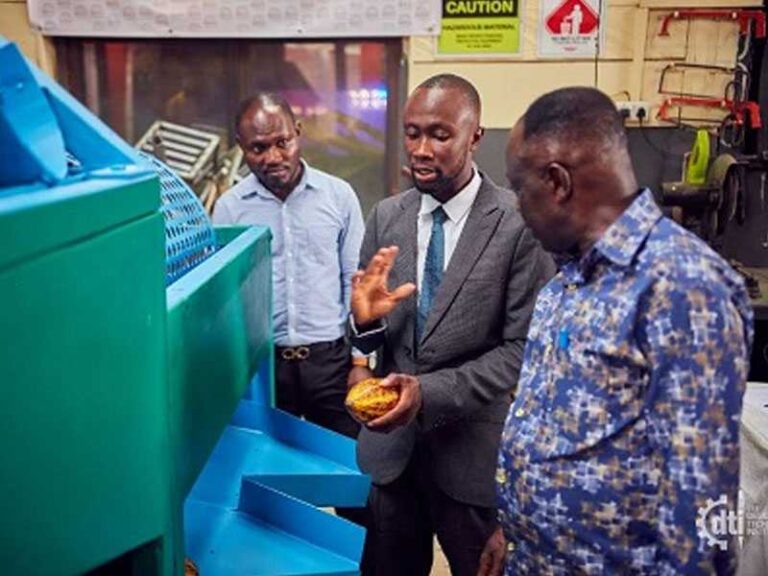
The maiden edition of Design & Technology Institute’s (DTI) annual Open House and Industrial Innovation B2B was opened in Accra on Thursday to aid student-led enterprises to showcase their products to the world market.
Organised in partnership with Accents and Arts (A&A), it outdoored the works of four small and medium enterprises (SMEs) namely, Haki Agro Engineering, manufacturers of groundnut shell threshers, Lysarp Field Engineering, manufacturers of mechanised seed planters, MEKFIX Engineering, manufacturers of cocoa pod breaker machines and JEYS Design Innovations, a start-up that manufactures low cost adjustable barbecue grills.
These SMEs were developed to solve local problems through the DTI Community Innovation Project designed to provide student-led enterprises with the tools, funding, and support they need to bring their business ideas or products to market and scale in agriculture, water and sanitation, plastics recycling, e-waste, and other sectors of the economy.
The project forms part of DTI’s three-year partnership with the Mastercard Foundation under the Young Africa Works “Transforming youth TVET livelihoods for sustainable jobs” which aim to provide 40,000 direct and indirect work opportunities for the youth in the country.
Speaking at the event, the Chief Executive Officer of DTI, Ms Constance Swaniker said the program encouraged participants to take a fresh look at problems in their community and identify new areas of business opportunity through coaching and market research.
She said, the businesses graduating from the Incubation Hub all had the potential to solve real problems for customers, create jobs, and drive growth.
“The determination of the Incubation Hub participants to succeed despite the challenges of starting a business deeply impressed me,” she said.
Ms Swaniker who is also the founder of A&A explained that, during the one-year Incubation period, entrepreneurs were assisted in developing their innovative ideas into high-potential businesses and promised to continue to support young entrepreneurs who want to transform Ghana’s economy and accelerate progress towards the UN Sustainable Development Goals.
The Technical Consultant at DTI Innovation Hub, Mr Paul Asiedu, called on corporate industries to collaborate and support “young people as they solve problems so that there will be transfer of skills, knowledge and processes.”
Elizabeth Amoah, one of the beneficiaries, stated that the DTI Innovation Hub provided her with the opportunity to learn how to run a profitable business.
“I have learned how business planning, financial planning, human resource management, teamwork and business law affect business operations. Now I can make a business plan, collaborate with others effectively, hire competent people, create financial budgets and manage my business finance,” she added.
At the end of the programme, winners who were chosen by a panel of judges from industry and academia, were awarded $25,000 seed capital to gain extensive business management, financial and operational resources, advisory services, and investment opportunities at DTI within a year.